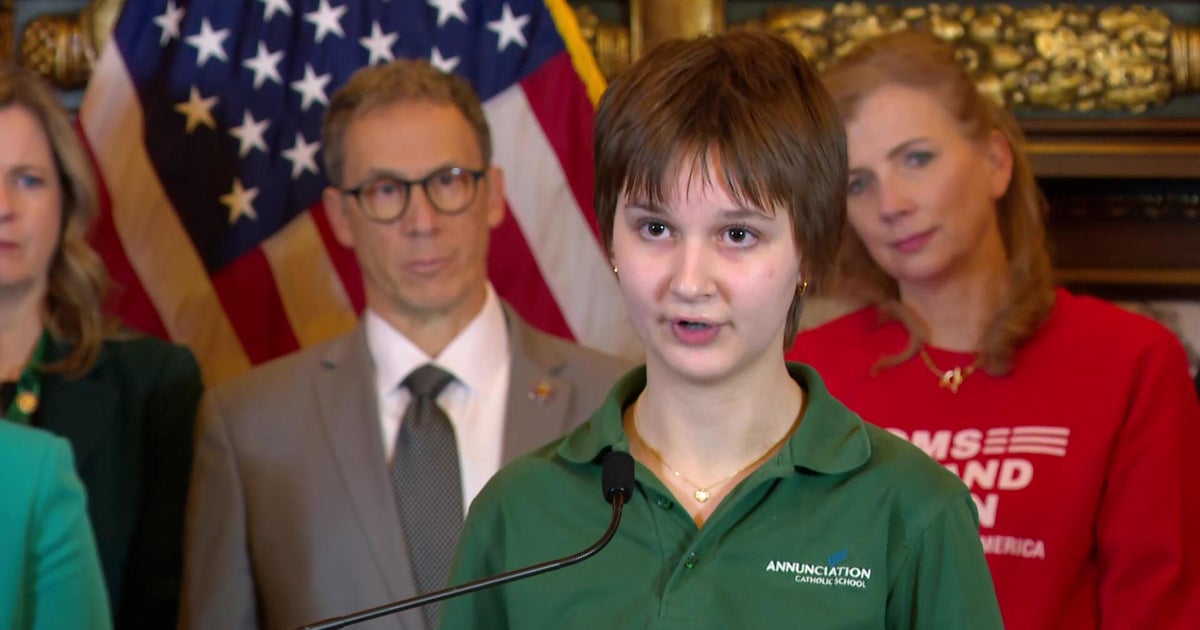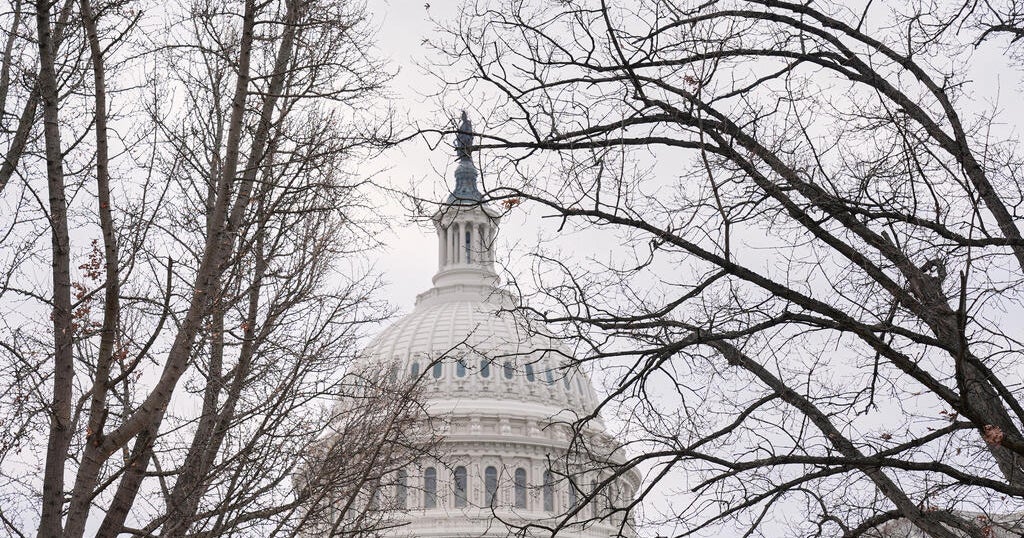Budget Bill Won't Have Wolf Management Returning To Minn.
MINNEAPOLIS (AP) — A proposal that would have taken gray wolves in the western Great Lakes region and Wyoming off the endangered list did not make it into a massive year-end congressional tax and spending package, an omission that surprised its backers but was welcomed Wednesday by groups that support maintaining federal protections for the predators.
U.S. Reps. Collin Peterson, D-Minnesota, Reid Ribble, R-Wisconsin, and some other lawmakers had hoped to attach a rider to return management of wolves in Minnesota, Wisconsin, Michigan and Wyoming to the states, which could have opened the door to a resumption of wolf hunting in those places. The provision would have undone federal court decisions that restored the animals' protected status in the four states despite repeated efforts by the federal government to remove them from the list.
Peterson said budget negotiators dropped the provision from the final bill, which was unveiled late Tuesday, because the White House had threatened a veto if the bill contained any changes to the Endangered Species Act.
"Obviously I'm disappointed," Peterson said. "We thought it wasn't going to be a problem because the Fish and Wildlife Service was supporting it."
Peterson, the ranking Democrat on the House Agriculture Committee, said supporters will have to regroup and decide on their next step. He said a stand-alone bill probably could pass the House but he's not sure about the Senate. It's also possible an appeals court could overturn the lower court decisions, he added.
While livestock interests supported removing federal protections for wolves, wildlife groups lobbied against it.
"It certainly was a pleasant surprise," said Brett Hartl, endangered species policy director with the Center for Biological Diversity.
Backers of the rider were trying to use a tactic that succeeded in 2011 when Congress removed wolves in Idaho, Montana and sections of Utah, Washington and Oregon from the list.
"Cooler heads prevailed in Congress," said Wayne Pacelle, CEO of the Humane Society of the United States. He said a letter written by Sens. Cory Booker, D-New Jersey, and Barbara Boxer, D-California, and signed by 23 other senators including Gary Peters, D-Michigan, helped make the difference.
The combined wolf population in the western Great Lakes region is estimated at 3,700, including about 2,200 in Minnesota, while Wyoming has around 333.
U.S. District Judge Beryl Howell ruled last December that the western Great Lakes states didn't have suitable plans to safeguard wolves, and that the animals haven't come close to repopulating their former range. Her decision prevented Minnesota and Wisconsin from holding sport wolf hunting and trapping seasons this fall. Michigan hasn't held a hunt since 2013. Another federal judge issued a similar decision in September 2014 in a Wyoming case.
The Obama administration, Michigan, Wisconsin and Wyoming are appealing the two decisions. Minnesota is not formally a party to the Midwest case, but the state attorney general's office filed an amicus brief Tuesday supporting a reversal.
The brief says Minnesota's wolf management plan will ensure the animals continue to thrive in the state. It says Minnesota's wolf population and range have expanded to the point of saturating the habitat in the state since the animals went on the endangered list in 1973, creating "human-wolf conflict that is unique in its cost and prevalence."
A similar appeal is pending in the Wyoming case. Pacelle said his group, which filed the lawsuit in the Midwest case, will keep up the fight.
"This is not the end of the process, but it's a good outcome because Congress is showing restraint and not trying to cherry-pick a species and remove it from the list of endangered animals," Pacelle said.
(© Copyright 2015 The Associated Press. All Rights Reserved. This material may not be published, broadcast, rewritten or redistributed.)







